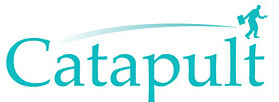Article 5 of 7-part thought leadership series: Protecting and Sustaining Your Organisation Through Ethical Decision-Making
Cultivating an ethical corporate culture is an artful blend of proactive strategies and core values. In this fifth article of our 7-part series, we decode the 9 Pathways that form the bedrock of a ‘Good Culture’, each pathway resonating with Hartman’s dimensions of value. Let’s delve into how these pathways can guide organisations in their ethical decision-making and help pre-empt potential scandals.
1. Trust: The Intrinsic Foundation. Trust is the cornerstone of any ethical culture. It stems from intrinsic value, which acknowledges the inherent worth of individuals. Building trust involves transparent communication and consistent actions that align with stated values. It’s about creating an environment where honesty is rewarded and malpractice has no place to hide.
2. Team Synergy: Extrinsic Collaboration. Team synergy is the manifestation of extrinsic value through collective effort. It harnesses the diverse skills and perspectives of a team towards a unified goal. This synergy discourages unethical shortcuts by promoting a culture where team members hold each other accountable, fostering a sense of shared responsibility.
3. Vision & Mission: Systemic Clarity. An organisation’s vision and mission are the systemic values that define its purpose and direction. They are the ethical compass that guides decisions and behaviours. A clear, ethical vision and mission ensure that every organisational action contributes positively to the broader goals, mitigating the risk of deviation into unethical territories.
4. Responsibility & Integrity: Intrinsic Accountability. Responsibility and integrity are intrinsically linked to ethical conduct. This pathway is about doing the right thing, even when no one is watching. A culture of integrity involves a commitment to ethical principles that goes beyond mere compliance—it’s about ingraining ethical behaviour as a non-negotiable characteristic of the organisational identity.
5. Getting Results: Balancing Extrinsic and Intrinsic Values. Getting results is essential, but how these results are achieved is equally important. A ‘good culture’ balances the drive for extrinsic success with intrinsic ethical standards. It ensures that performance targets are ambitious, yet realistic, and that achieving them never compromises on ethics.
6. Success Strategies & Discipline: Systemic and Extrinsic Alignment. Strategies and discipline integrate systemic and extrinsic values. Success strategies informed by ethical principles and executed with discipline prevent the emergence of a ‘win at all costs’ mindset, paving the way for sustainable achievements that uphold the organisation’s ethical standards.
7. Innovation & Change: Extrinsic and Systemic Progress. Innovation and change reflect the organisation’s ability to evolve within ethical boundaries. Encouraging ethical innovation ensures that the organisation’s growth and adaptation do not come at an unethical price. Managing change with a focus on ethics respects the impact on all stakeholders.
8. Preparation & Tactics: Systemic and Extrinsic Readiness. Preparation and tactical planning are critical in complex business environments. Ethical preparation ensures that strategies and tactics are developed with consideration for their broader implications, ensuring that the organisation’s goals are pursued with a conscience.
9. Consistency & Conformity: Systemic Uniformity. Consistency and conformity to ethical standards reinforce systemic value. It’s about creating a culture where ethical behaviours are the norm and there’s a consistent application of ethical standards across the organisation. This uniformity is vital in preventing ethical lapses.
Conclusion
These 9 Pathways represent a multi-dimensional approach to building an ethical culture. By interweaving these pathways into the organisational fabric, leaders can foster an environment where ethical decision-making is intrinsic to the company’s operations, deterring potential scandals and promoting a resilient, ethical brand identity.
In the upcoming articles, we will explore real-world applications of these pathways and their transformative impact on organisations.



0 Comments